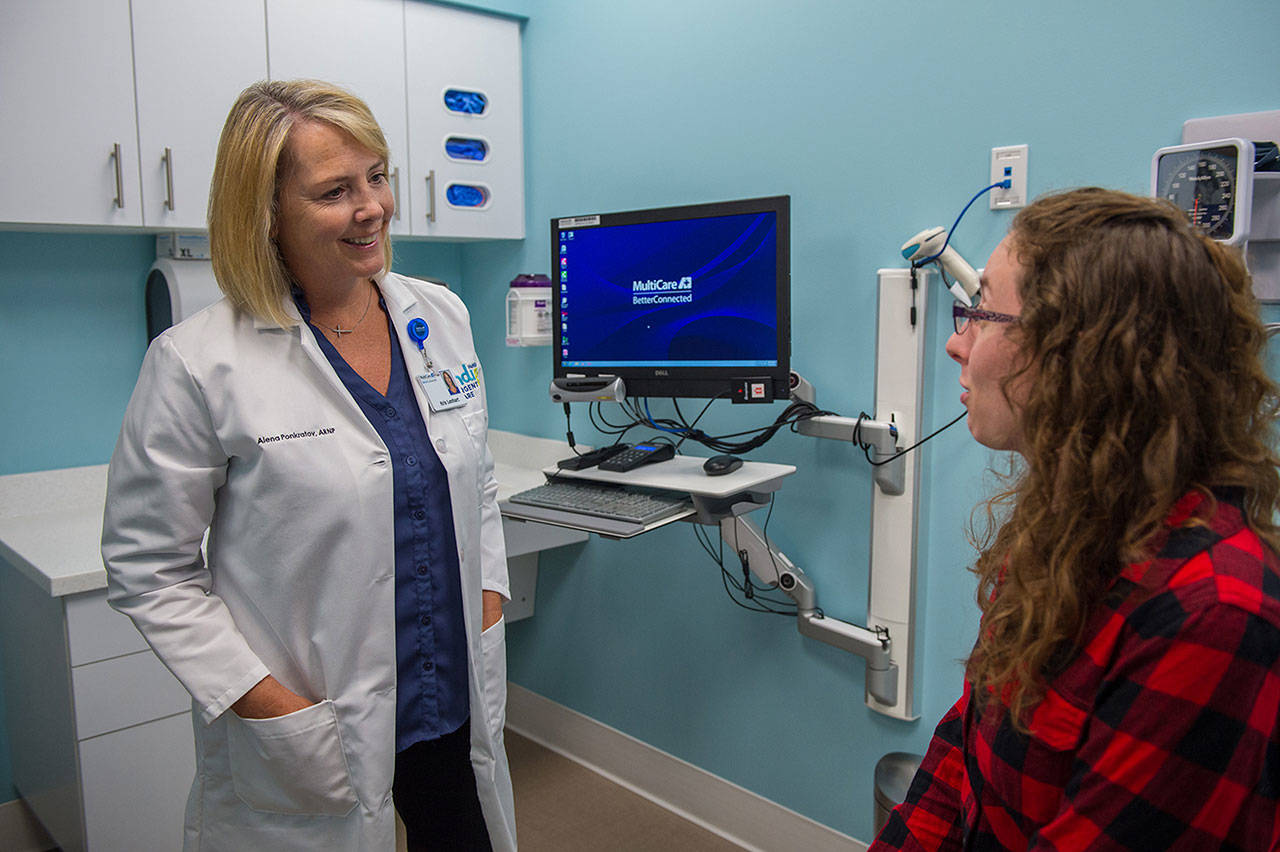The following is a press release from MultiCare Health System:
Let’s be honest. Not everyone is treated the same at the doctor’s office — and the costs of that are high:
-
Pregnant black women in the United States are three to four times more likely to die in childbirth when compared to white women.
-
Women are seven times as likely as men to be misdiagnosed and sent home from the hospital while having a heart attack.
-
Black Americans are 34 percent less likely to be prescribed opioids for pain compared to white patients with similar conditions.
The discrimination in these cases may not be overt. It’s called implicit or unconscious bias.
“Implicit biases are unconsciously held attitudes or beliefs about certain groups of people that can impact our actions or decisions and can lead to stereotyping,” says Jamilia Sherls-Jones, director of MultiCare’s Center for Health Equity and Wellness.
For example, providers may dismiss a woman’s pain, assuming it’s “just hormones.” Some may assume black Americans have a higher pain tolerance — an outdated and incorrect belief originally used to justify slavery — and thus prescribe inappropriate painkillers.
“We know unconscious bias plays a role — you’re making decisions in a way that aren’t in the best interest of the individual,” Sherls-Jones says.
We have implicit bias from direct and indirect messages that we receive from the media, family, friends and other sources, she says. Some of these messages are rooted in sexism, racism and other beliefs. But that doesn’t mean we can’t improve and achieve better health outcomes for black Americans, women and other disadvantaged groups.
WHAT MULTICARE IS DOING
What can be done? Sherls-Jones suggests a few things: anti-bias training for providers and staff to help identify implicit bias and remove it from the decision-making process; recruiting a more diverse workforce, including health care providers; and encouraging patients to advocate for themselves.
MultiCare requires providers and staff to participate in mandatory cultural competency trainings that address bias and stereotypes. The health system is also exploring specific training on implicit bias for managers, along with creating strategies to recruit a more diverse workforce.
Recruiting, hiring and retaining a diverse workforce is important to MultiCare for several reasons, says Sarah Dryfoos-Guss, outreach program manager for MultiCare’s Center for Health Equity and Wellness. By having employees from different backgrounds, MultiCare can provide more culturally relevant care, for one.
“MultiCare was born out of the desire to serve the needs of our communities, and by ensuring we are made up of the communities we serve, we can do this in an authentic way,” Dryfoos-Guss says.
HOW TO TACKLE YOUR OWN UNCONSCIOUS BIAS
It may sound daunting, but it’s possible to retrain your brain, even for biases you may not be aware of.
“We tell people it’s hard to be conscious of bias,” Sherls-Jones says. “It’s natural for everyone to have a bias; it’s human. But it is important to be aware of any biases you hold to prevent them from negatively impacting your actions and interaction with others.”
What can individuals do? For those wanting to become more aware of their unconscious biases, Harvard University offers several implicit association tests based on different populations.
Once you’re aware, you can work to minimize the chances your bias will interfere with decision making related to different groups.
Also, simply exposing yourself to other cultures and groups different than your own can help, Sherls-Jones says. For example, volunteer at the Tacoma Pride Festival or at the Tacoma Urban League, or similar organizations in your own city. Immerse yourself in other cultures and learn what’s important to them. The goal is to develop positive connotations that will replace negative ones.
Another tip: Try to avoid making first impressions of people. Easier said than done, right? But simply becoming aware of first impressions you have that may be based on stereotypes and not reality is a great start.
Are microaggressions the same as implicit bias? Sherls-Jones says they’re related, in that they are rooted in unconscious beliefs about other groups of people. But microaggressions — actions or comments that subtly or unintentionally communicate prejudice — occur as a result of implicit bias. For example, telling an Asian-American “You speak English very well” implies that you expected they would not, and may make this person feel like a foreigner in their own country.
WHEN YOU’RE ON THE RECEIVING END OF MEDICAL BIAS
What about when you’re on the receiving end of implicit bias or discrimination in a medical setting? Sherls-Jones recommends starting with the patient relations department, who will investigate the complaint and help determine the appropriate actions to resolve it.
If you feel discriminated against and are willing, Sherls-Jones also suggests telling your provider what’s bothering you specifically and letting them know if you disagree with a treatment decision — because treatment should be a shared decision between the provider and patient.
“Don’t accept something you don’t feel comfortable with,” Sherls-Jones says. “There are other options. Find a provider you resonate with.”
And if you’ve experienced discrimination in health care and it’s made you unwilling to go to a provider, bring along a trusted friend or family member who feels comfortable advocating for you.
MultiCare values equity, diversity and inclusion and is committed to providing the best possible care for all patients and their families. If for any reason you feel you have been discriminated against, please reach out to our Privacy & Civil Rights department via the Integrity Line 1.866.264.6121 or compliance@multicare.org.
MultiCare Health System is a not-for-profit health care organization with more than 18,000 employees, providers and volunteers.


